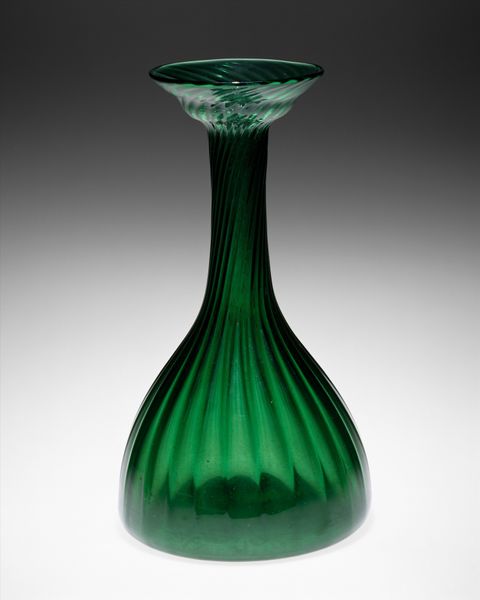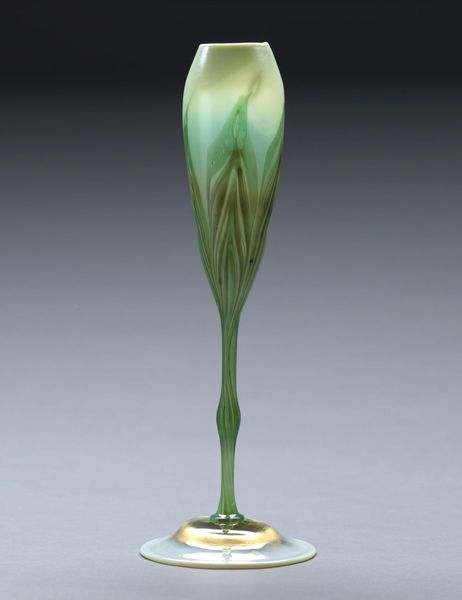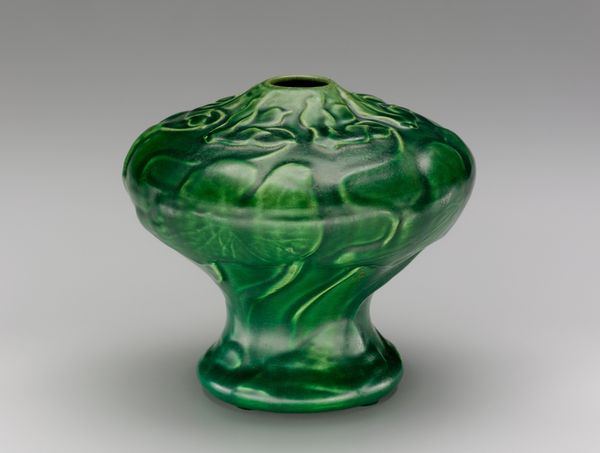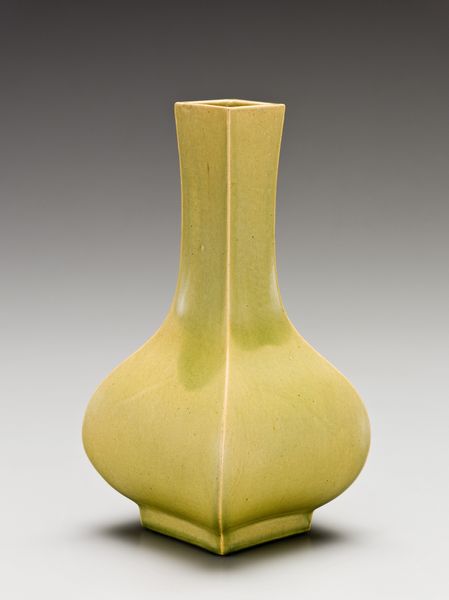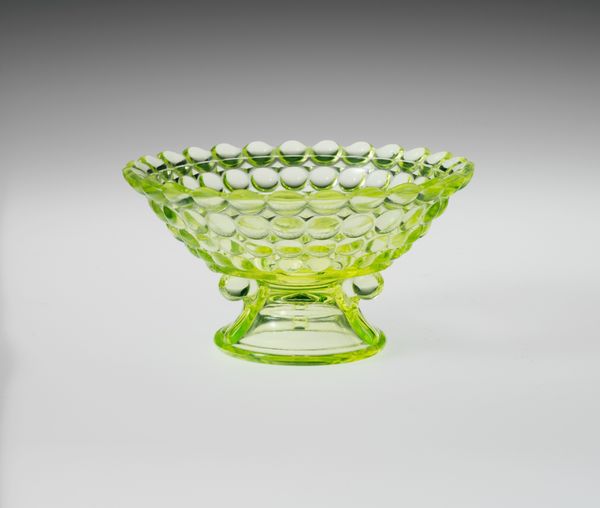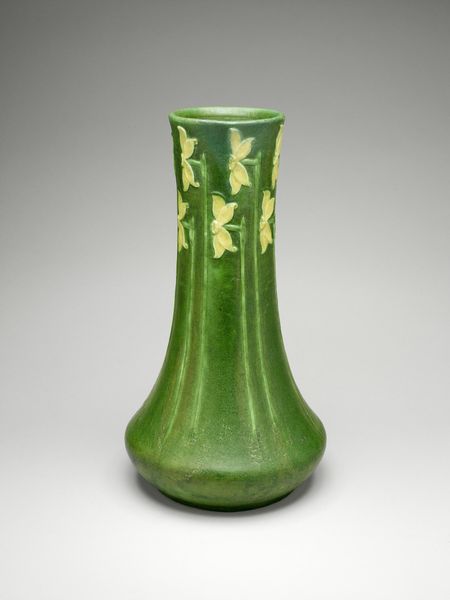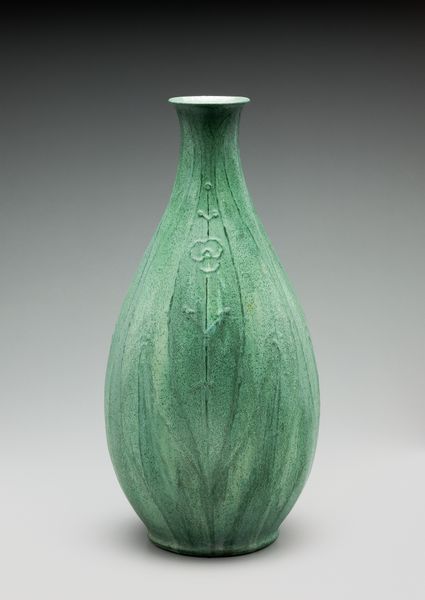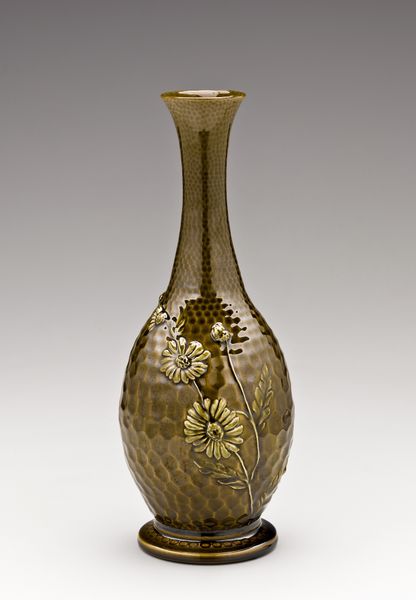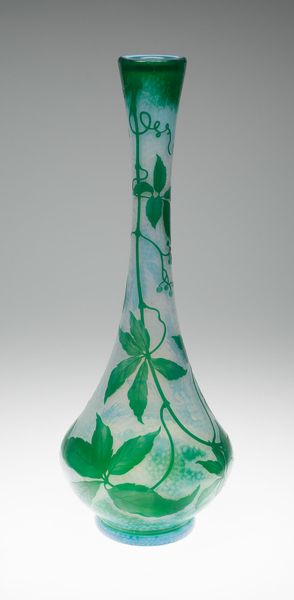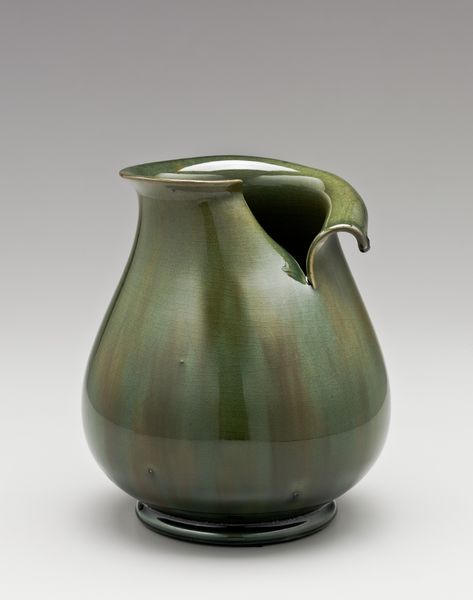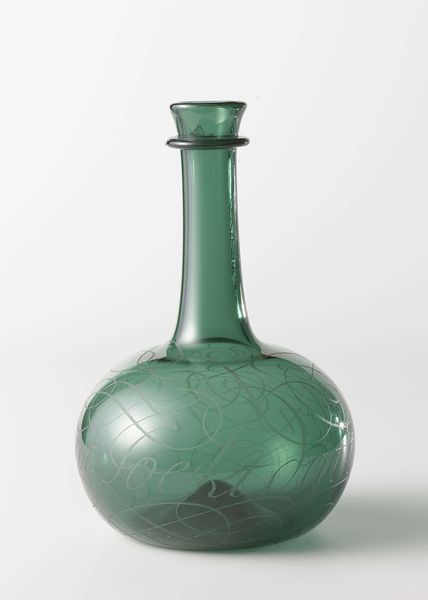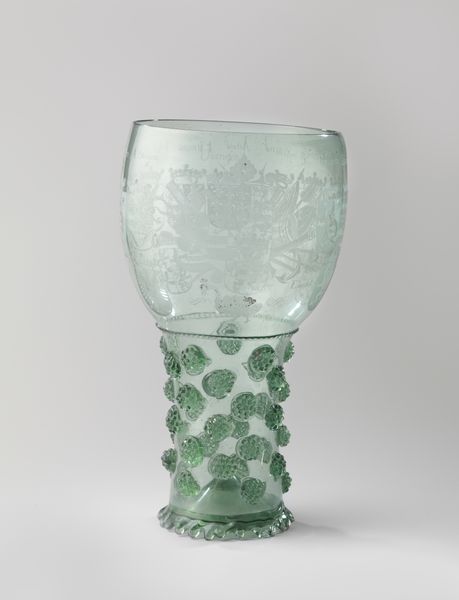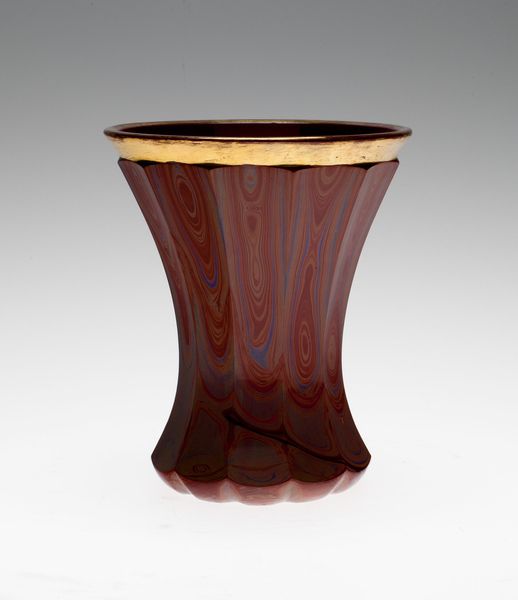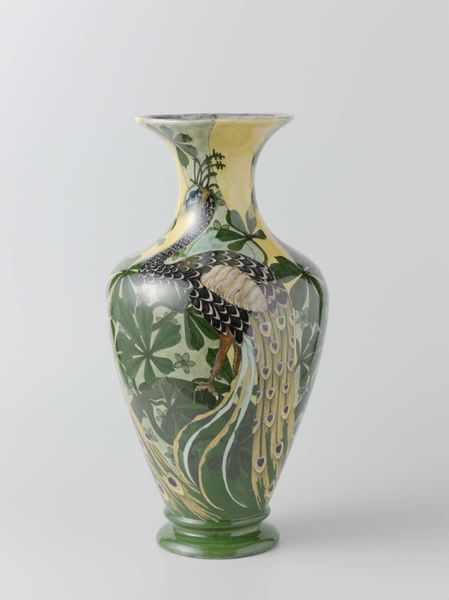
glass, sculpture
#
arts-&-crafts-movement
#
glass
#
sculpture
#
decorative-art
Dimensions: confirmed: 15 7/16 × 6 13/16 × 6 13/16 in., 3.3 lb. (39.2 × 17.3 × 17.3 cm, 1.5 kg)
Copyright: Public Domain
Editor: Here we have the "Clutha Vase" by Christopher Dresser, made of glass, sometime between 1883 and 1903. I find the green color and flowing patterns surprisingly calming. How would you interpret this piece? Curator: Well, structurally, the vase presents an intriguing interplay between the organic and the geometric. The swelling base contrasts with the sharp, almost industrial, precision of the flat, disc-like top. Editor: Industrial? That's an interesting take! Curator: Consider the controlled, repeated striations within the glass itself. Are these striations purely decorative, or do they evoke a sense of manufactured precision, hinting at the mechanization occurring at the time? The color too, this muted green... what does it suggest to you about its intended environment? Editor: Maybe it's meant to blend into a garden, bringing the outside in? Or does the shape of the top—round and flat—suggest a specific, perhaps utilitarian, function? Curator: Precisely! Form and function are, as always, intertwined. Also, examine the materiality, the subtle imperfections and textures within the glass. They speak to the artistry, defying complete uniformity and machine replication. Editor: So, it’s a tension between mass production and unique craftsmanship? Curator: Yes. That tension embodies the complexity inherent in this singular piece. The flat disc disrupts our conventional ideas about vessels and complicates our experience with it. Editor: This has really made me think about how art objects are perceived. There is so much more than meets the eye, isn’t there? Curator: Indeed. Engaging in the pure aestheticism reveals underlying visual dialogues within form and substance.
Comments
No comments
Be the first to comment and join the conversation on the ultimate creative platform.
